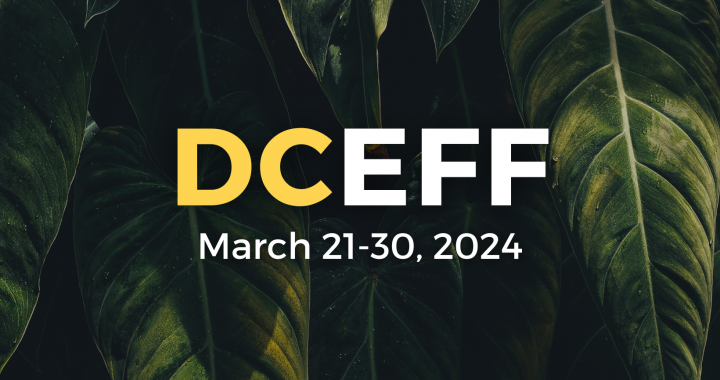As we come into spring, it’s delightful to see the growing green and budding blossoms that begin to reappear throughout the DC area. If nature intrigues you or you just want to spend a little more time out of the house while the weather gets warm, look no further than DCEFF’s 32nd annual environmental film […]
Continue readingTag Archives: Film festival
For the silent film treasure hunter…
Imogen Sara Smith highlights Mostly Lost on Criterion. Definitely worth a read. On eventbrite, the description of the Mostly Lost workshop is: The Library of Congress National Audio-Visual Conservation Center, Packard Campus presents “Mostly Lost 6: A Film Identification Workshop” on June 15-17, 2017 in Culpeper, Virginia. “Mostly Lost” will feature the screenings of unidentified, […]
Continue readingThe Toronto Film Festival had “its blackest edition ever”
As we saw at this weekend’s Emmy Awards, we’re finally seeing what happens when diversity in film goes from being a challenge to an asset. Diversity expands the possibilities of storytelling and filmmaking, and NPR saw that in effect at this year’s Toronto International Film Festival. Normally, the author Bilal Qureshi points out, film festival […]
Continue readingWhat does independent film look like today?
via Maryland Film Festival The slow roll into summer is the time of year when we start to look at our big-picture tasks, so it seems appropriate to share a big-picture article about the state of film. For The New Yorker, Richard Brody wrote a lengthy piece about the state of “independent film” and what […]
Continue readingHear Betty Boop and Max Fleischer favorites performed live
Discussion about the early history of animation tends to focus on Walt Disney and Looney Tunes, ignoring good old Max Fleischer. Fleischer was the man behind Betty Boop, Popeye, and other Depression-era classics. We could talk about those for a week, especially the censorship of Betty Boop, but one of the most critical parts of […]
Continue readingGames on Film invades National Harbor’s MAGFest this weekend
In DC, film festivals turn up in the oddest places. This city hosts so many non-profits and interest organizations that you can usually find special screenings for any topic or culture, as we’ve covered in the past. For 2016, you can add gaming to that list: as part of the annual Music and Games Festival […]
Continue readingArabian Sights Film Festival brings its twentieth year to Friendship Heights
From From A to B We’re close to the start of the unending stream of Halloween-related activities, but the rest of the world doesn’t stop in October. There are plenty of film happenings around DC this month, so let’s talk about one of the cooler ones, the twentieth anniversary of the Arabian Sights Film Festival. […]
Continue readingDC Shorts is happening… right now!
One of DC’s biggest film events has been happening under our noses! DC Shorts, an annual showcase of short films, has been going on since last Thursday, but there’s still a few more days worth of films to catch. Over the course of a week and a half, DC Shorts screens over 100 shorts from […]
Continue readingBuenos Aires film festival puts decades of Latin American films online for free
Our comfortable routine of watching major blockbusters and idly browsing Netflix often blinds us to titles we wouldn’t otherwise seek out, and too often, that includes world cinema. Our usual outlets sometimes either downplay or outright omit films from other countries and in other languages. If you want to watch something from elsewhere on the […]
Continue readingTelevision’s reign of visual media continues, bleeds into film festivals
Even in a post-Breaking Bad and nearly-post-Mad Men landscape, television continues to assert its cultural dominance. More directors and actors turn to television for a chance to tell experimental or long-form stories, and the film world has unsurprisingly taken notice. In the latest sign of this explosive growth and relevance, the Toronto International Film Festival […]
Continue reading
